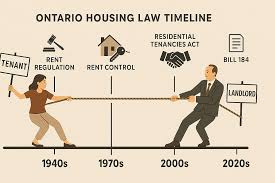In recent years, Québec has seen major changes in how residential condominiums, or divided co-ownerships, are governed. The most important of these is Bill 16, adopted in 2019 and coming fully into force on August 14, 2025. For the province’s nearly one million condo owners, this reform represents a shift in culture: from short-term budgeting and minimal disclosure toward long-term financial planning, building transparency, and consumer protection. Here’s what every condo owner should know. Condo ownership in Québec has grown rapidly over the last two decades, especially in urban centers. However, many syndicates of co-owners lacked sufficient financial planning or records of building condition. This often led to surprise special assessments, underfunded reserve funds, and disputes between buyers and sellers. Bill 16 aims to correct these problems by imposing clearer obligations on condominium corporations, standardizing maintenance practices, and ensuring buyers have reliable information before purchasing.
The Maintenance Logbook (Carnet d’entretien)
One of the most impactful obligations introduced by Bill 16 is the mandatory maintenance logbook. Every syndicate of co-owners must prepare and maintain this document, usually with the help of a professional engineer, architect, or technologist.
The logbook must contain:
-
A full inventory of the building’s common elements (elevators, roofs, parking garages, mechanical systems, etc.).
-
Installation dates, warranties, and user manuals.
-
The current condition of each element, updated regularly.
-
A forecast of necessary repairs and replacements covering at least the next 25 years.
The logbook must be updated annually and undergo a structural review every five or ten years, depending on the building’s size. Syndicates have until August 14, 2028 to comply, giving boards three years to put the system in place.
For owners, this means greater predictability. Instead of being surprised by urgent repair bills, you’ll have a clear picture of what to expect and when. Well-maintained logbooks will also increase a property’s credibility with potential buyers.
The Reserve Fund Study
Bill 16 also makes reserve fund studies mandatory. Every five years, a qualified professional must evaluate the adequacy of the syndicate’s contingency fund, which covers major repairs and replacements. The study must align with the maintenance logbook and ensure that contributions are sufficient to meet upcoming needs.
In practice, this is likely to raise condo fees in many buildings, since many reserve funds in Québec are underfunded. While higher monthly contributions may sting, they protect owners from sudden, far larger special assessments down the line.
The Syndicate Certificate for Buyers
Another major innovation is the syndicate certificate. Starting August 2025, when a co-owner accepts an offer to sell a condo, the syndicate must provide the buyer with a certificate within 15 days.
This document summarizes:
-
The financial situation of the condo corporation (budget, reserve fund balance, surpluses or deficits).
-
Planned or ongoing major works.
-
Insurance coverage and claims.
-
Litigation involving the syndicate.
-
Amendments to the declaration of co-ownership.
For buyers, this ensures transparency before finalizing a purchase. For sellers, it means gathering information early and working with the board or property manager to avoid delays. Owners should also recognize that the state of their syndicate—healthy finances, up-to-date studies, and strong planning—will directly affect their unit’s market value.
Cultural Change and Market Impact
Legal experts describe Bill 16 as a “change in culture.” It forces condo boards to think beyond the next budget cycle and adopt practices that resemble professional asset management. Buildings that are proactive, transparent, and financially sound will attract buyers and maintain property values. Conversely, syndicates that neglect these new requirements risk losing value and facing legal exposure.
Owners should prepare for gradual increases in condo fees as studies reveal the true costs of long-term maintenance. While this may feel like the end of “cheap” condo living, it also means greater protection for investments and safer, better-maintained homes.
What Should Condo Owners Do Now?
-
Get informed. Ask your board about plans for the maintenance logbook and reserve fund study.
-
Budget ahead. Expect higher monthly fees but fewer unpleasant surprises.
-
Collaborate. Participate in annual meetings and push for transparency.
-
Plan sales early. If you intend to sell, make sure your syndicate is prepared to deliver the new certificate on time.
In summary, Bill 16 is the most significant reform to Québec’s condominium laws in decades. While it introduces new costs and responsibilities, it also provides owners with the tools to protect their property values and ensure the long-term sustainability of their buildings. By embracing transparency and professional planning, condo owners will not only comply with the law but also strengthen the foundations of co-ownership in Québec.
Search
Categories
Recent posts
Tags
- a louer
- affordable apartments Toronto
- affordable housing
- affordable housing solutions Canada
- Air Filters
- air quality
- apartment
- apartment close to public transport
- apartment for rent
- apartment for rent montreal
- apartment for rent Toronto
- apartment insurance
- appartement
- appliances
- ARTICLE
- available for rent
- background check
- bacteria
- best city to live in canada
- best healthcare
- bicycle
- bicycle path
- bike lane
- bike path
- bikes
- bill 16
- burglar
- buy a house
- buying a house
- carbon monoxide detector
- cars
- centris
- city
- cleaning
- cleaning products
- cleaning wood floors
- closet
- closet space
- clothing organizer
- compact rental units
- condo
- condo association laws
- condo fees
- condo for rent
- condo insurance
- construction budget
- construction contractors
- construction cost
- credit check
- decorating room
- digital transaction
- door lock
- doors
- downtown micro apartments
- electricity
- employment verification
- energy consumption
- energy cost
- energy saving
- engineered hardwood
- fire alarm
- fire detector
- fire extinguisher
- floor
- flooring
- for rent
- For rent in Montreal
- For rent in Toronto
- For rent in Vancouver
- for sale
- furniture
- gas
- healthy candles
- healthy lifestyle
- home
- house
- house for rent
- house for sale
- house garden
- house insurance
- house locks
- house plants
- immigrant
- importance of water leak detector
- indoor plants
- insurance
- intergenerational home
- intergenerational living
- interior designer
- investment
- landlord
- lease
- lease responsibility
- long term care facility
- low crime
- mattress
- micro-apartments Vancouver
- micro-units Toronto
- mls
- move to canada
- moving company
- Moving to canada
- moving truck
- multigenerational home
- multiplex
- nano-suites
- nano-suites Toronto
- new apartment
- new color
- oil
- old age home
- online house purchase
- Ontario
- paint colors
- passive income
- pet friendly apartment
- pet friendly plants
- planning for vacation
- plants
- porcelain tile
- property
- questions for apartment rental
- real estate
- real estate agent
- real estate broker
- real estate online
- real estate transaction
- realtor
- renal history
- rent
- rent an apartment
- rent control
- rent obligations
- rental
- rental board
- rental scam
- renting
- residential income
- residential lease
- residential rental
- revenue property
- safe area
- safe candle in apartment
- safe candle in house
- safe candles
- safety
- scam
- security
- sell a house
- seniors residence
- small apartments Vancouver
- smoke detector
- social media and real estate
- soy candle
- soy candles made with essential oils
- storage space
- student apartment
- student housing
- tenant
- tiny rentals Canada
- traffic
- trending color
- trending paint
- university student rental
- ventilation
- vinyl floor
- water alarm
- water damage
- water leak detector
- window frame
- window manufacturer
- windows
- wood floors



